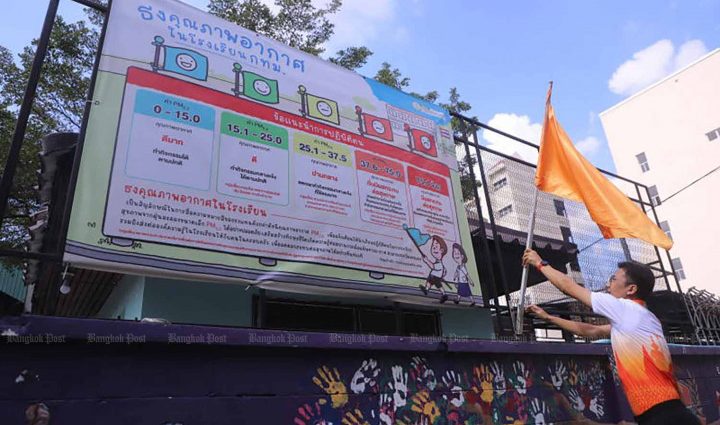PUBLISHED : 14 Dec 2023 at 06:19

The Clean Air bill will be introduced next year, according to the Department of Pollution Control.
Pinsak Surasawadee, the department’s chief, said the cabinet recently approved the bill, drafted by a committee chaired by environmental academic Buntoon Srethasirote.
The bill combines points from the previous bill on clean air and highlights measures to prevent pollution from many sources.
The bill will be submitted to the Office of the Council of State, the Ministry of Natural Resources and Environment, the cabinet and parliament.
“We expect the bill to be passed into law by next year because many parties agree that clean air is an important issue. We need the law to control air pollution,” Mr Pinsak said.
A national committee on air management will be set up which will declare measures to control sources of fine particulate matter smaller than 2.5 microns, or PM2.5, offer economic incentives to reduce haze pollution, and effective methods for air quality reports.
He added the bill has put more importance on transboundary haze pollution, saying that any owner of a source of haze pollution outside Thai territory is regarded as a wrongdoer inside Thai territory and must pay damages.
The ministry has been working with the Ministry of Commerce to implement a regulation banning the import of any products from Laos, Cambodia, and Myanmar that could cause farm fires leading to smog or PM2.5.
Images taken from satellite technology will be another crucial tool for finding culprits. Such a practice will be implemented after the bill becomes law, Mr Pinsak said.
Meanwhile, the Ministry of Agriculture and Cooperatives will encourage farmers to change from burning farm crops after harvesting to other methods, such as turning crop residue into landfill or fertiliser, under so-called Good Agricultural Practices (GAP).
He added that other measures would also help to improve the situation, including efforts to switch to electric vehicles and the use of a better quality fuel under the EURO 5 standard, to be implemented on Jan 1.
Pollution from PM2.5 is expected to peak from January to March. Most of the capital’s hotspots are caused by transport.
Meanwhile, 70% of northern provinces’ pollution is caused by forest fires. The forest authority plans to hire locals to take preventive measures against illegal burning in the forest, Mr Pinsak said.

